No, Ukuleles don’t have metal strings. They have Nylon strings However, you can use metal strings on a ukulele. But, keep in mind, normally ukuleles are designed for Nylon strings so you should not expect metal strings to sound as good as nylon strings.
Even though the ukulele is similar to a guitar, there are differences between the size, the number of strings, build, and the sound produced.
I don’t think it is impossible to use steel strings on a ukulele. Unless it is designed for ukulele or you will destroy the ukulele by doing so.
Using the steel strings in the ukuleles put high tension on the neck which is likely to cause bending of the neck.
So, according to me using steel strings in ukuleles will probably destroy the ukulele and very likely it will not work because traditionally ukuleles are not constructed for steel strings.
However, some ukulele brands also sell metal, fluorocarbon, and wound strings ukuleles.
Let’s discuss all types of strings used in ukuleles.
Disclosure: This post may contain affiliate links, which means we may receive a commission if you click a link and purchase something that we recommended. Read more about Affiliate disclosure here.
Contents
- Five Types of Ukulele String Materials
- What Are the Preferred Types of Ukulele Strings?
- Can You Use Steel Strings on a Ukulele as a Beginner?
- How Would a Ukulele Sound With Steel Strings?
- How Much Tension Is There in Ukulele Strings?
- How Hard Should You Press Ukulele Strings?
- Do Ukulele Strings Break Often and Are They Replaceable?
- Bottom line
Five Types of Ukulele String Materials
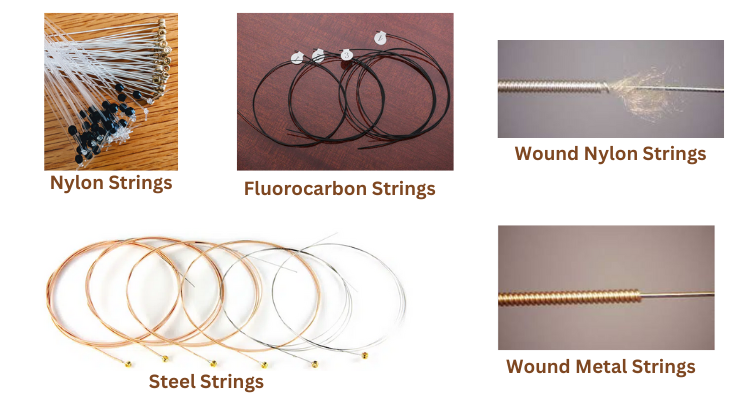
Almost all ukulele strings are made of synthetic nylon or fluorocarbon materials.
Additionally, nylgut, titanium wire and wound wire are also used within other categories.
Each different material has a slightly different tone and character.
Let me take you through five types of ukulele strings in depth to help you understand the different types of ukulele strings.
1. Nylon Strings
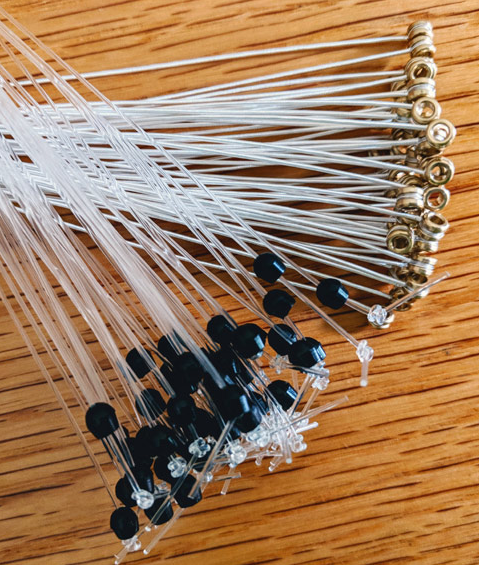
This is the most preferred type of material used in ukulele strings.
Nylon strings are made from nylon, which is made from livestock intestines and mix of nylon.
Nylon strings produce a warm mellow tone.
Nylon strings are also durable and moisture resistant but you may need to re-tune for temperature changes.
One downside of nylon strings is that they are very stretchy, so they require a lot of tuning.
However, you can produce warm and melodious sounds with nylon strings that will delight your mind.
2. Fluorocarbon Strings
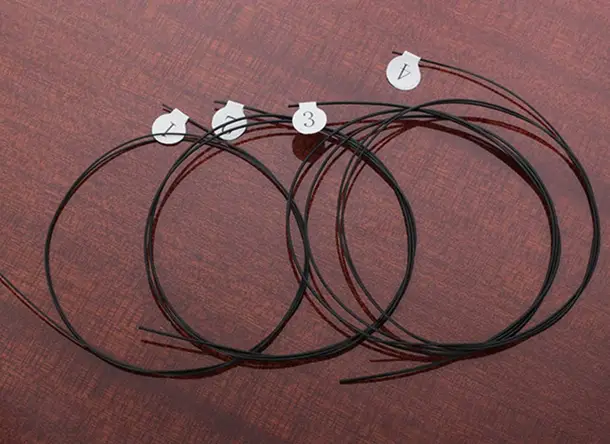
Fluorocarbon is another popular type of material used in the manufacture of ukulele strings.
Fluorocarbon strings are more expensive than other strings, so they are used only by professional ukulele players who can afford them.
Fluorocarbon string is similar to nylon string but it produces a brighter tone.
Fluorocarbon string is preferred by many musicians because it does not cause problems with temperature like nylon strings.
3. Steel Strings
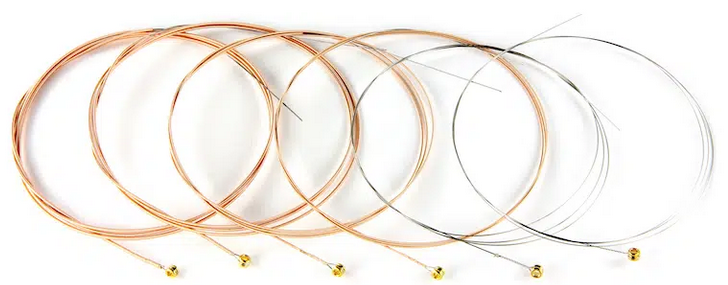
Steel and titanium are less commonly used materials in the manufacture of ukulele strings.
The high tension of these strings and there is no truss rod used in budget ukuleles made these strings less common for ukuleles.
Steel strings are stronger, but still not traditional for ukulele strings. Using steel strings can probably destroy the ukulele.
Steel strings are generally suited for guitars and bass guitars.
You can use steel strings on a ukulele with a slight change in sound. If it is designed for the ukulele.
It is used by some professional ukulele players but is not the right choice for beginners.
4. Wound Nylon Strings
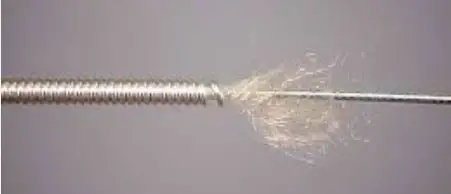
Wound nylon strings are made of another type of nylon which is a nylon coat that is wrapped in a winding layer of thin polymer string.
It has also been found that wound nylon strings produce a louder sound than any other ukulele strings.
It can be beneficial to use wound nylon strings as compared to steel strings. It also produces a mellow sound like a nylon string which makes it popular.
5. Wound Metal Strings
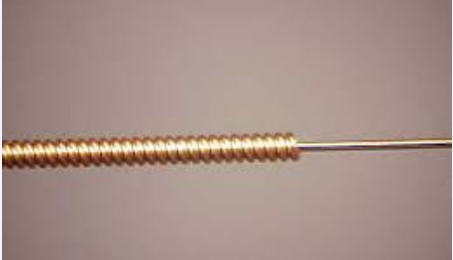
It is similar to a wound nylon string, but instead of nylon, a metal core is used, which is wrapped with a thin polymer thread.
Using wound metal strings in the ukulele, the sound can be made like the sound of a guitar.
What Are the Preferred Types of Ukulele Strings?

We have discussed above the different types of ukulele strings.
But the most common ukulele string material is Nylon.
See, the ukulele Is designed to use nylon strings. They add less tension to the neck compared to metal strings.
That’s why nylon strings are the most popular and used ukulele strings.
But some people also use other ukulele strings according to their needs, which gives them different sounds and feel.
If you are a beginner, I would like to recommend you use nylon strings on the ukulele.
Can You Use Steel Strings on a Ukulele as a Beginner?
According to me, being a beginner, it would not be appropriate for you to use steel strings.
Because steel strings are slightly harder than nylon strings, playing with them can be difficult for a beginner. And, also they can damage your ukulele.
How Would a Ukulele Sound With Steel Strings?
First of all, it is advised that you should avoid using steel strings in ukulele.
However, if you want to use steel strings on a ukulele, you should take extra care of it, otherwise, you will most likely destroy it.
- There is also a difference in the sound produced by using steel strings in ukulele.
- The sound coming out of it is harsh and bright while nylon produces a melodious and sweet sound.
- Cheaper ukuleles often use wooden fretboards without a truss rod which are softer and using steel string can shatter them.
- Steel strings produce a brighter sound than nylon and have increased pitch and tuning ability due to their higher tensile strength.
- Steel strings require more tension than nylon and this is more expensive than nylon string.
How Much Tension Is There in Ukulele Strings?
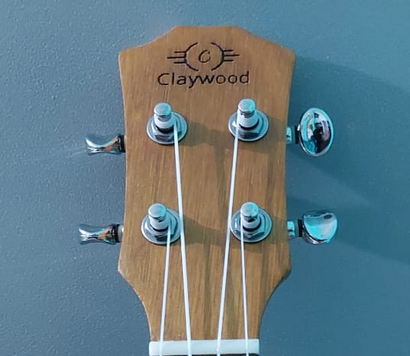
As you know that ukulele has four nylon strings which when some tension is applied to produces sound.
Nylon strings put less pressure on the ukulele.
If you put steel strings on a ukulele you need to get the bridge straight as it is not designed for extra tension.
A ukulele with 4 strings is normally stringed at 196 Hz which is a low G.
The higher the tension on the ukulele’s strings, the tighter the strings.
Higher tension strings can give a bigger, bolder, more aggressive sound, but can also be harder to play and leads to damage.
How Hard Should You Press Ukulele Strings?
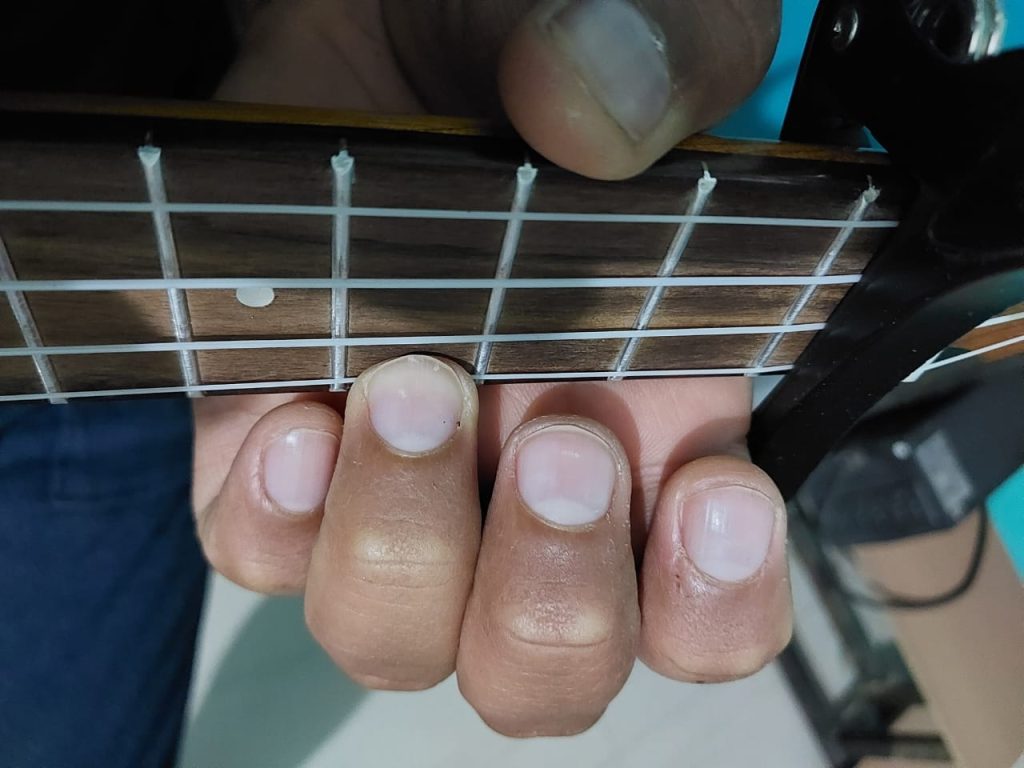
You don’t need to press the strings hard enough to play the ukulele. Gentle teasing is the right way to get you to play it.
If you are a beginner, it may take you some time to understand how to pluck the strings of the ukulele and how much pressure is appropriate, but you will understand all the nuances while playing it.
Pressing too hard on the ukulele string may detune it and cause pain in your fingers. Also, you may develop calluses by hard-pressing ukulele strings.
So my advice is to play the ukulele strings comfortably with less pressure.
Do Ukulele Strings Break Often and Are They Replaceable?
Yes, often while playing ukulele there is a problem that the string of the ukulele breaks.
That’s because of the high pressure applied to the strings or tight tuning.
Many times beginners do not know the small nuances and they tend to pluck the strings too hard, due to which the string breaks.
Another reason for this is as the wire ages it becomes weak.
If you don’t apply much pressure on the strings tune it well and keep your ukulele safe, you can play for 5 to 10 years comfortably without changing ukulele strings.
Once ukulele strings break, you can easily replace them.
Nylon strings break more quickly than steel strings and if one string breaks, you are better off replacing the whole set.
Bottom line
Well, I hope you’ve understood why it’s preferred to use nylon strings with ukulele.
If you’ve other queries related to ukulele then ask in the comment box. I will definitely answer all your queries.
Happy Uke Playing…
